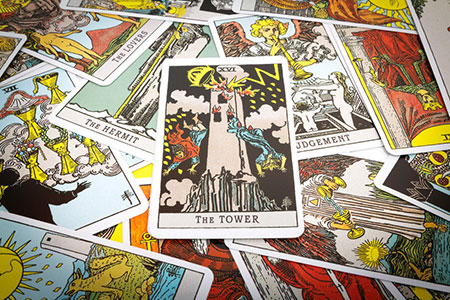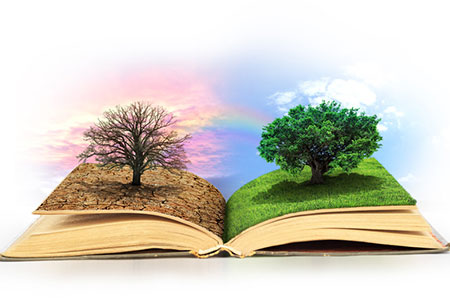self-reflection
Be True To Yourself To Find Your Soulmate
 How do I find my soulmate? This is indeed the magic question. Many people are constantly searching for that special person, but just seem unable to find them.
How do I find my soulmate? This is indeed the magic question. Many people are constantly searching for that special person, but just seem unable to find them.
Actually, achieving this life goal is often simpler than most people believe it to be. The direct path to your soulmate is paved with clarity of intention. Many people do not find what they wish for in life simply because they don’t know what they are looking for.
Sometimes, people end up finding the person they used to be looking for a decade or two ago, because they never ‘updated’ their intention. As we grow and evolve in our life, our priorities, goals, wants and needs change. But we do not always make the effort to match our intention and energy vibration to it.
To find your soulmate, the first thing to recognize, or reconsider, is what do you truly want? Make a list of traits you wish for in a partner: caring, sense of humor, fun-loving, adventurous, happy, joyful, good listener, honest, dependable, loyal, respectful, kind, confident, nurturing, strong, ambitious, trustworthy?
Keep the list short and concise, as the more complicated your wish list becomes, the longer and more complicated the manifesting process will become. Nobody is perfect, do expect too much. Instead identify your shortlist of ‘must have’ qualities that are non-negotiable. Identify your absolute deal-breakers.
You must look at what is really important to you; what is a priority. Once you have decided, stick to those items of priority. Every time you meet someone new, make sure the person has these qualities. If they don’t, move on. This is key to finding your happiness and fulfillment – not to settle for less than you deserve.
You need to believe you deserve this and to be happy. It sounds basic and simple, but you will be surprised to know how many people tend to put their own needs last and end up with someone who who treats them poorly…just to be with someone. It is important to remember you are important. Ask yourself honestly what you want, need and deserve.
Recycle Your Blessings This Winter Season
 As we approach winter in the northern hemisphere, let us be inspired by the seasonal change. Look around and observe nature as it prepares itself for a period of dormancy that leads to renewal and rebirth in the spring.
As we approach winter in the northern hemisphere, let us be inspired by the seasonal change. Look around and observe nature as it prepares itself for a period of dormancy that leads to renewal and rebirth in the spring.
Change is the catalyst for growth in our lives. Some choose to think of winter as an unpleasant, ‘lifeless’ time, but in truth it is a golden opportunity to connect with the deeper realms of our mind and soul.
Embrace the profound stillness that this season offers and use the longer nights as opportunity for conscious self-reflection. Sit with this stillness and claim your majestic place on the sacred throne that was created solely for you.
Take back your personal power from the turbulence of the outer world and allow the chatter to grow quiet. Trust that in the midst of your most pressing thoughts and that which nags your soul, there is the Divine right path to oneness, healing, balance, peace, reconciliation, spiritual recognition, and soul empowerment.
Along with the obvious holiday cheer, this is one of the many gifts of the winter season; connecting to the eternal flame of the universe that shines on each of us.
As I ponder the personal changes I wish to embark on, I am reminded that nothing new can happen without letting go of the old. Many years ago, a dear friend implemented an annual winter ritual of clearing her closet of personal items she no longer desired. This is always performed just before the New Year.
I recall asking whether she was maybe acting too hastily in letting go of some of her prized possessions, as some of the discarded items were relatively new. She responded that she was creating space for new gifts to enter her life, while passing the old on to others who might be blessed by receiving it. My friend essentially spoke of recycling her blessings, a concept that was new to me at the time. And in doing so, she created a special karma for herself that opened the path for new delights to enter her life.
Reversing The Reversals
 You’re moving at a breakneck pace and everything is going like gangbusters. Good health, great job, satisfying relationship. You just moved in with the person of your dreams and you’re banking some major coin that gives you many options in life. Travel, designer clothes, flashy car with all the latest bells and whistles. You’re the belle of the ball, the center of attention, feeling like Ms Scarlett O’Hara in Gone With The Wind.
You’re moving at a breakneck pace and everything is going like gangbusters. Good health, great job, satisfying relationship. You just moved in with the person of your dreams and you’re banking some major coin that gives you many options in life. Travel, designer clothes, flashy car with all the latest bells and whistles. You’re the belle of the ball, the center of attention, feeling like Ms Scarlett O’Hara in Gone With The Wind.
Any problems you might have, like those recurring nightmares in which you’re being chased and can’t get away, you simply disregard. You’ll rather think about it tomorrow. Every morning you simply turn a blind eye and start another glorious day. Today is good, forget about last night. No time to see the truth in the rear view mirror.
And then a global pandemic hits. Suddenly the entire world is reversed and upside down. Everywhere people are dropping out and tuning into misery. You’re stuck at home with your new live-in partner who no longer looks so shiny, neither does the new car, even with all those bells and whistles.
You’re feeling shell-shocked, overwhelmed, scared. You feel like a trapped lab rat, waiting for an insidious disease to strike. Meanwhile you are getting a crash course in relationship 101, learning about all your partner’s peccadilloes, those annoying little quirks and habits you used to find so cute. Then the awesome job goes away, and you and lab rat partner are left to fight all the time. One of you needs to leave. But neither of you can go anywhere.
All you can do is go within. Sleep becomes a refuge, until those nasty nightmares become more of a reality to you than your waking life. And now you feel like a zombie; the dead version of your former vibrant self.
This is what’s called a reversal in life. Dramatic? Yes. Depressing? Absolutely. We all encounter it from time to time, the reversals, the spiritual contrasts. Sometimes not quite so dramatic, other times even more so.
The Wisdom Of The Trees
 The annual seasons profoundly affect perennial trees. Each year many species of perennial change color, release their leaves, go dormant, and then come back to life in the spring with new growth.
The annual seasons profoundly affect perennial trees. Each year many species of perennial change color, release their leaves, go dormant, and then come back to life in the spring with new growth.
As humans we could learn a lot from these trees. Firstly, they are naturally in tune with the seasons. They can ebb and flow with the natural order of things. For a season their leaves will gather up energy from the sun for growth. They bask in the light and find nourishment. And they can do this because of their ability to release the old when the time comes.
There are times in our lives when we also need to release the old things from the past. All our life experiences have natural course and expiry date to them. All our relationships in this physical life are also temporary experiences. Knowing this allows us to be in the flow with the cycles of life and the afterlife.
Too often we resolutely cling to the past, which causes us to feel stuck or keeps us from developing the types of relationships and experiences we truly want. If the trees were to hold on to their old dead leaves, there would be no room nor energy for further growth. It would be impossible for them to thrive and be nourished by the sun.
There is also no way for trees to perpetually grow. One time I planted a tree late in the season. I gave it lots of nourishment, but over the winter it died off. By fertilizing the tree, I was creating a condition that would not allow it to survive. The fall is when trees release their leaves so the wood can harden off.
Too often people want to run to the next experience, and the next experience. Or they they try to make an experience last indefinitely. They want to make the ‘summer’ of their peak human experiences last forever. They never give themselves the opportunity to let go and properly grieve what has been, in order to recenter and become stable and energized for the next spring.
It is important for us to acknowledge our actual life experiences and move through the winter seasons in a way that prepares us for the next season. There is a temptation to just keep running to the next experience or next relationship to satiate a previous painful experience. However, in doing so we create situations that are toxic and unsustainable.
Small Steps To Big Changes
 Making positive changes in your life can often feel like an insurmountable task. At times it can be so daunting that it might even seem easier to just have things stay the same, no matter how uncomfortable it has become.
Making positive changes in your life can often feel like an insurmountable task. At times it can be so daunting that it might even seem easier to just have things stay the same, no matter how uncomfortable it has become.
This is especially true when we have been working on the same aspect of our life for years and still not seeing the results we were hoping for, whether the issue is weight loss, finances, health and wellness, family, career, or relationship.
For me the challenge was a particularly frustrating relationship situation. I felt that no matter what I did, no matter how hard I tried to grow and move forward, I always got sucked back into the drama and negativity.
I continually called on my angels and spirit guides to help me improve the relationship, to heal our issues, release our karma, and so forth. I tried anything and everything I could think of to achieve some of the harmony and peace I so much desired in my life.
This went on for years, and I was ready to throw in the towel and just accept that this one area of my life would always be out of balance. But as soon as I let go, I received the most amazing piece of information from my guides!
They showed me how I was focusing too much on the big picture, or the end result. I also realized that because everything wasn’t miraculously healed over night, I was becoming frustrated and disregarding all the tiny steps and improvements I had been making in repairing the relationship.
My guides further told me to break the steps in the healing and reconciliation process down into smaller parts. Instead of seeking instant and complete resolution, I should be working towards small daily improvements. If I do this consistently, I will soon reach the end goal.
Love, Joy And The Pursuit Of Happiness
 According to the United States Declaration of Independence “life, liberty and the pursuit of happiness” are the inalienable birthrights of every human being given to us by our Creator, God, Source, the Divine.
According to the United States Declaration of Independence “life, liberty and the pursuit of happiness” are the inalienable birthrights of every human being given to us by our Creator, God, Source, the Divine.
Sadly, I find very few people to be successful in their pursuit of happiness. The same is true for finding love and joy. It seems many are merely stumbling through life trying to find it.
A teacher once told me life is like school. For some of us it’s like kindergarten – easy, uncomplicated, and lots of fun. For others it’s like graduate school with lots of difficulties and challenges to overcome.
Searching for joy, love and happiness does seem to be a ‘wild goose chase’ for many people. It truly is like chasing wild animals. The faster we run after it, the more it seems to flee. I don’t believe joy, love and happiness can be found. Well, at least not in the ways that many of us are hoping to find it.
Like happiness, the right to love is also the natural inheritance of every person. The well-known channeled text, A Course in Miracles, delves into the idea of love from a spiritual perspective. It states that it is impossible to teach love. Instead, the goal should be to remove the blockages or obstacles we have to allowing love’s presence in our lives.
I have seen repeated evidence of this in doing readings for many years now. Certain reading themes are repetitive and common themes are ‘finding love,’ or the ‘lack of love,’ or ‘loss of love.’ In all these readings one thing always becomes very clear: love itself is not an ‘out there’ thing. It is also not something that can be received from another person or thing.
In readings, Spirit will often say, “Love is not a feeling.” This one initially took me a while to understand myself, until I realized that love is in fact an intrinsic quality of being. It is already within each of us. We refer to it as the Higher Self, the Soul, or the Spirit. No one is ever separated from this innate love because it is an intrinsic aspect of our very being.
